
Clinical Specialist Physiotherapist and Manager Guys & St Thomas’ Private Physiotherapy Service (London, UK)
Owner & Lead Clinician of All Powers Rehabilitation & Conditioning
@allpowersphysio
What it must be like to be bottom of the food chain…
The Antarctic Krill are just that. Ecologically they are scraping the bottom of the food chain as they eat plankton, a microscopic organism which in even the highest concentrations would be nothing more than a smear of green on the water of the ocean.
There are thought to be 85 different species of crustacean that can be considered “krill”, and together they are estimated to form the largest multi-cellular biological mass on planet Earth (up to 500 million tons) (1). The cumulative biomass of humans was estimated in 2012 as 350 million tons (when wet!)
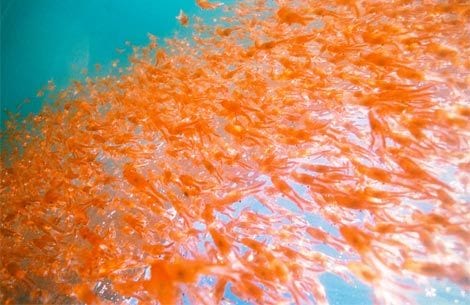
Meaning… there are loads of them. In a world where sustainability is essential it is shocking that only 12% of the total krill catch fished is consumed by humans (2).
Especially considering that it is formed of approximately 60-80% protein (3); and is chemically formed with nine essential amino acids - enough to meet FAO and World Health Organisation guidelines for human consumption (4, 5).
Krill is also an excellent source of Omega-3 fatty acids (?3FA), which in recent years has been a commonly suggested, prescribed and sought out dietary supplement via fish oils. Krill oil is taking the health world by storm…
How does Krill oil work?[/su_heading]
Krill oil is a nutritional supplement taken in soft gel tablet or liquid form. Similar to regular fish oils, krill oil is a source of omega-3 fatty acids. There are three types of these fatty acids which are involved in our bodies’ physiology:
- ?-linolenic acid (ALA)
- Eicosapentaenoic acid (EPA)
- Docosahexaenoic acid (DHA)
ALA is found in plant sources, such as chia seeds, flaxseed or soya beans. It is described as a “short chain” fatty acid due to it’s relatively shorter molecular length
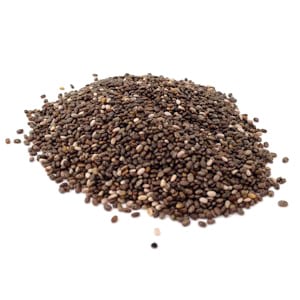
EPA and DHA are from marine life sources, and are larger molecule strands which unfortunately the human body is unable to convert from the shorter ALA molecules. In fact our bodies are only 5% efficient in this conversion process (6,7).
In simple terms, adding more EPA and DHA into your body’s tissues allows a greater rate of efficiency in blocking pathways of cellular inflammation. This inflammation could be acute (short lasting) or chronic (long lasting).
Having more EPA and DHA means the body is able to manage and reduce the rate and scale of the inflammatory process to promote physiological benefits.
Krill oil supplementation of 1000mg per day for 4 weeks shows a significant increase in EPA (178%) and DHA (90%) (14).
Why Krill Oil?[/su_heading]
Initial concerns in the literature indicate that krill oil is exorbitantly expensive compared to fish oils (8). However, on MyProtein.com you can find that this is not necessarily the case with Krill Oil only £5 more expensive than a fish oil of the same standard.
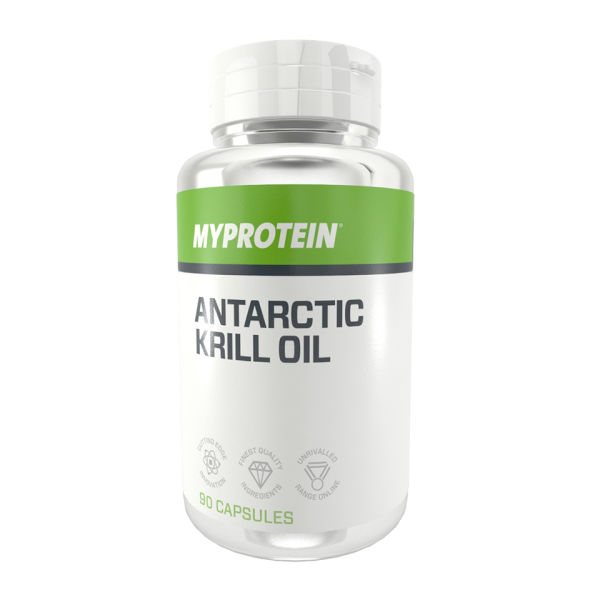
The difference between prices is also understandable due to the specific molecular structure of krill oil compared to fish oils and its greater “bioavailability” (9).
STUDY
This characteristic of krill oil was examined in a study from the University of Oslo in Norway (10). These researchers took 129 healthy volunteers with slightly elevated total blood cholesterol and normal/ slightly elevated blood triglyceride levels. They ruled out anyone with an existing cardiovascular issue and they ensured no participant had concomitant medication during the trial.
The group was divided and given either 3g of krill oil, 1.8g of fish oil or no medication daily for a period of 7 weeks. Their diets were scrutinised to ensure they did not regularly consume lots of fatty fish and they were advised by a nutritionist in how to ensure their eating habits stayed regular.
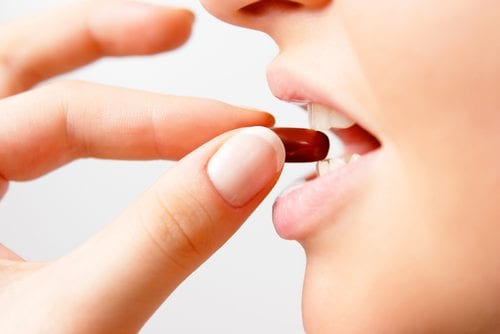
The krill tablet contained 500mg of oil (90.5mg EPA and DHA) which they took 6 times per day. The fish oil tablet dose was 3 tablets containing 600mg of oil (288mg EPA/ DHA). As you can see the fish oil dose of EPA/ DHA was significantly greater!
The study examined changes in the amount of low density lipoprotein and cholesterol in the blood, as well as collecting other markers (such as total protein, glucose and calcium). They also measured various inflammatory markers within the blood (chemicals indicating inflammation).
The results indicated that obviously blood levels of EPA and DHA were raised in both the fish oil and krill oil groups. However, the dose required to make an equal change in EPA/ DHA was 321mg lower when taking krill oil- or you had to take 321mg more fish oils (62.8%) for the same change in EPA/ DHA levels seen with krill oil. The reason for this is suggested to be its greater “bioavailability”.
Bioavailability[/su_heading]
In krill oil the fatty acids are stored as phospholipids which are the same structure as the molecules in our bodies (11). In fish oils they are stored differently as triglycerides meaning the efficiency of their use by our body is reduced. The phospholipid form of fatty acids in krill oil has actually up to 25% greater absorption (8).
Interestingly, the use of krill oil rather than fish oils also increases blood levels of arachidonic acid, which whilst an “inflammatory” polyunsaturated omega-6 fish oil, has been used as an anabolic body building supplement. In fact, supplementation with high doses (1,500mg/ day) over 8 weeks has been shown to increase lean body mass, strength and aerobic power (12,13).
Dose[/su_heading]
Guidelines indicate that doses of EPA + DHA of 1000-4000mg/ day lowers triglyceride levels (8). Only when you reach 3g/ day do you see gastrointestinal symptoms (9).
Further research examining krill oil as a supplement specifically indicates that 4 weeks of supplementation with 2000mg per day showed no safety issues (14).
The product information for the Antarctic Krill Oil at MyProtein suggests 1-2 soft gel capsules per day for a dosage of 430mg of phospholipids (140mg EPA and 66g DHA), which could easily be increased to 4-5 to raise levels further.
When to take Krill Oils?[/su_heading]
Whilst the scientific studies have demonstrated benefits from taking Krill Oil either in tablet form or via an IV, to some extent it is better to not to be reactive in your supplementation regime. It is much better to be proactive!
For example, if you broke a bone and started to take a calcium supplement (or drink lots of milk!) the effect would not be optimal.
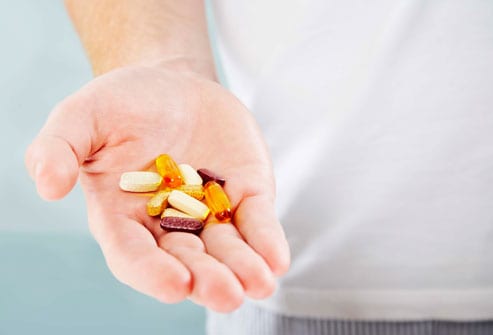
The same can be said for krill oil. It is far more beneficial to your health and your healing response to injury and disease that you aim to sustain a regular, high concentration of EPA and DHA in your tissues. This means having a krill oil tablet as part of your normal daily vitamins and mineral consumption.
To return to the bone analogy, this would mean consuming a diet rich of calcium in order to “prevent” a fracture by increasing or maintaining the density of your bones.
Take Home Message[/su_heading]
Omega-3 fatty acids are a part of our supplementation regime which is essential due to our bodies’ inefficiency in creating DHA and EPA.
Krill oil is an excellent source of these fatty acids, and due to its greater bioavailability means we can consume less with the same benefits as fish oils! For Krill Oil supplements the benefits, far outweigh any negligible increased expense.
Many thanks!
Krill oil capsules
Our articles should be used for informational and educational purposes only and are not intended to be taken as medical advice. If you're concerned, consult a health professional before taking dietary supplements or introducing any major changes to your diet.








